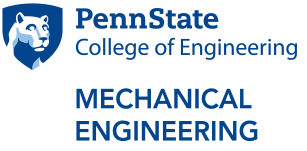Managing IAQ at Multiple Scales - from Urban to Personal Microenvironments
ME 590 Seminar Speaker Series
Bio:
Dr. Jianshun “Jensen” Zhang is Professor of Mechanical and Aerospace Engineering and Executive Director of SyracuseCoE at Syracuse University (SU), New York, USA, and a Visiting Professor of the School of Architecture and Urban Planning at Nanjing University, China. He received his BS and MS from China University of Agriculture in 1982 and 1985, respectively, and his Ph.D. from University of Illinois at Urbana-Champaign in 1991. He was a researcher at National Research Council of Canada for 8 years before he joined SU in 1999. Dr. Zhang is an expert in room air and contaminant distribution, material emissions, air purification, building enclosure performance, and combined heat, air, moisture, and pollutant simulations (CHAMPS) for integrative design and intelligent controls of buildings. He has authored/co-authored over 200 technical papers, 3 American national standards and 3 book chapters. He is Editor in Chief of the International Journal of Ventilation and Associate Editor of Science and Technology for the Built Environment, and a Member of the Editorial Boards of Building Simulations—an international Journal. He served as the US Expert to IEA Annex 20, 68, 79, and 86, and was co-founder of the CHAMPS Collaborative. He was conference Chairman for IAQVEC 2010—7th International Conference on Indoor Air Quality, Ventilation and Energy Conservation in Buildings and IBPC 2018—7th International Building Physics Conference. He served as President of the International Association of Building Physics from 2018 to 2021 and is a Vice President of IAQVEC Association. He also chaired ASHRAE TC 4.10 Indoor Environmental Modeling and the ASHRAE Environmental Health Committee. He is Fellow of ASHRAE and ISIAQ.
Additional Information:
Abstract:
Indoor air quality (IAQ) is vital to human health, wellbeing and performance as people typically spend over 80% of their time indoors. The indoor pollutants people expose to originate from both indoors and outdoors. To devise an energy-efficient and cost-effective approach to improving IAQ, it is necessary to consider strategies across multiple scales – from the outdoor environment around buildings to inside buildings, to rooms, and to the microenvironment around the occupants that directly affect the human exposure and intake of the pollutants. In this talk, we present a 3-dimensional view of the IAQ engineering: the scales (of environments), the species (of pollutants) and strategies (of IAQ control). The objectives are to assess the potential and limits of the various source control, ventilation and air purification strategies across the different scale, and to develop an integrated approach for managing IAQ in an energy-efficient and cost-effective manner. Existing data from previous research on the effectiveness of various IAQ strategies and technologies at the different environmental scales will be discussed, including a layered approach to reduce the risk of airborne transmission of the COVID 19 virus. The talk will end with an outlook to the future challenges in IAQ research.
Event Contact: Mechanical Engineering


